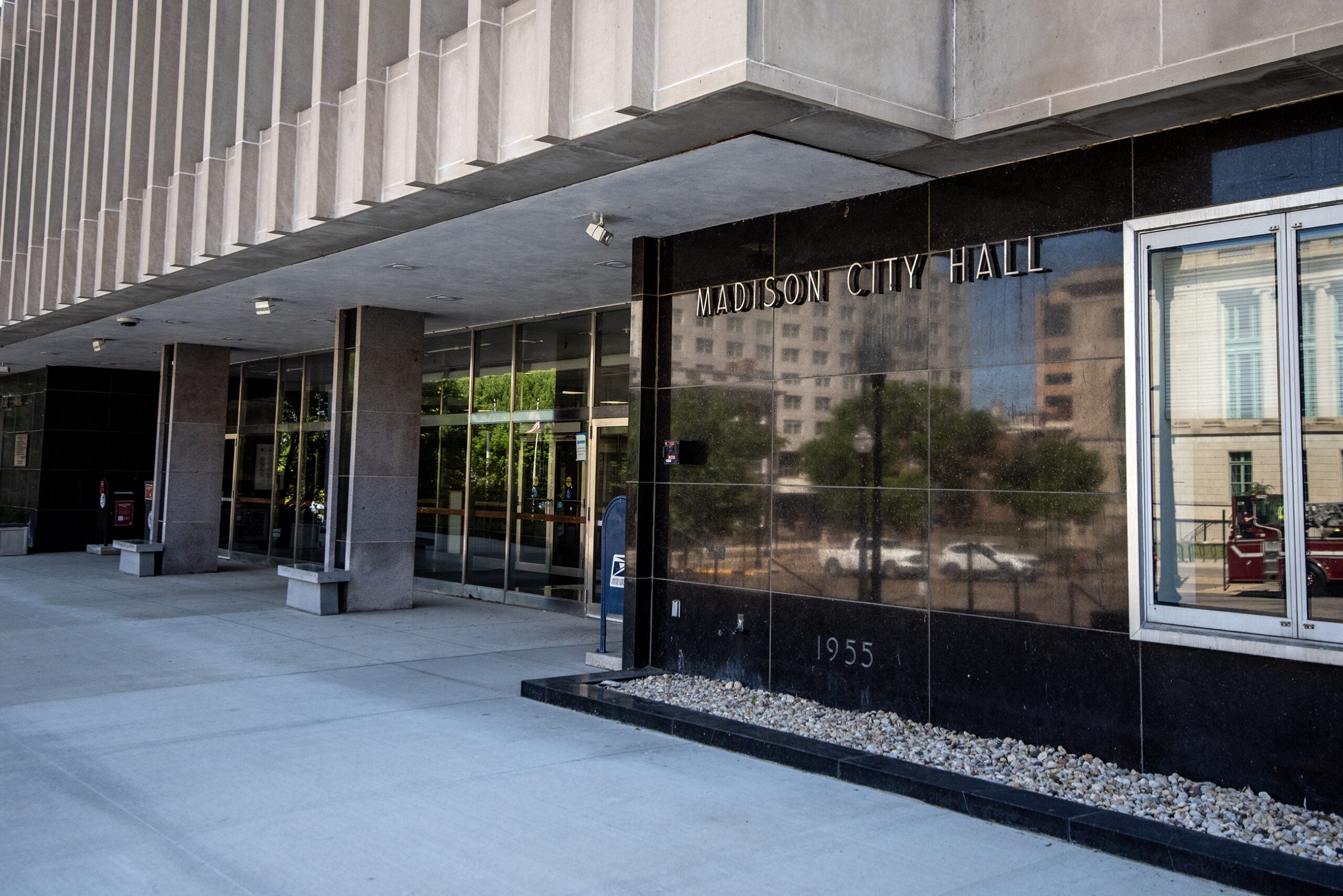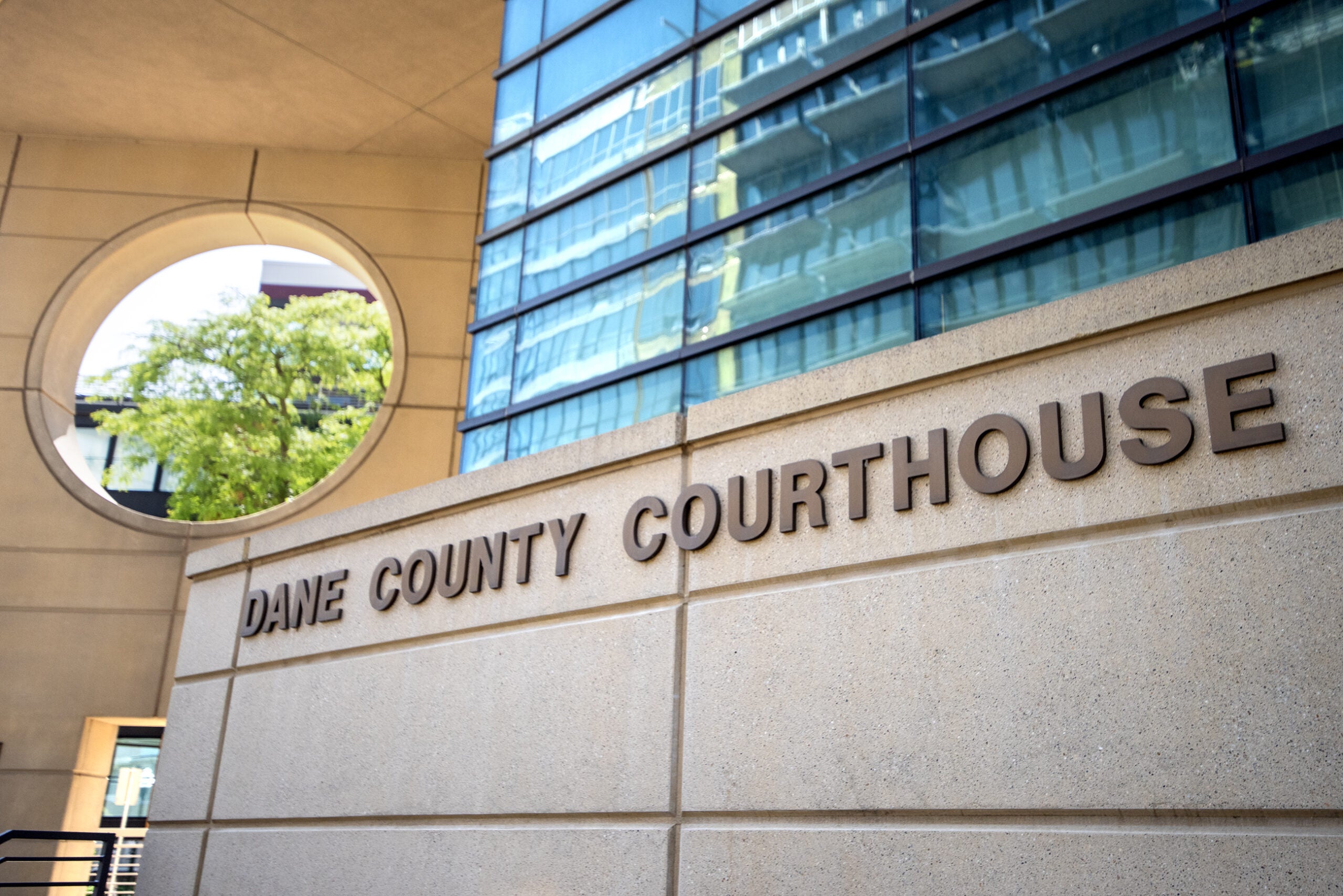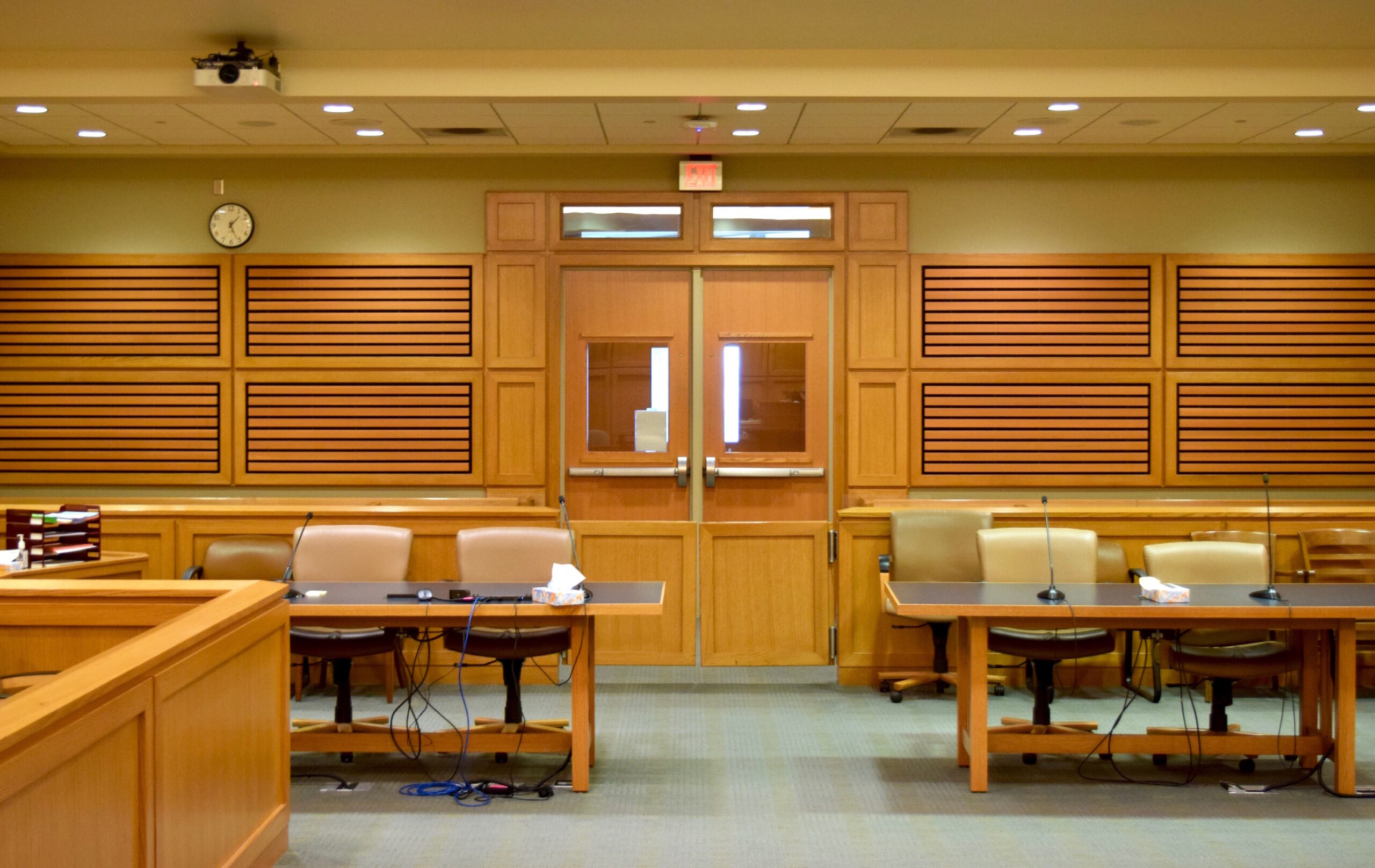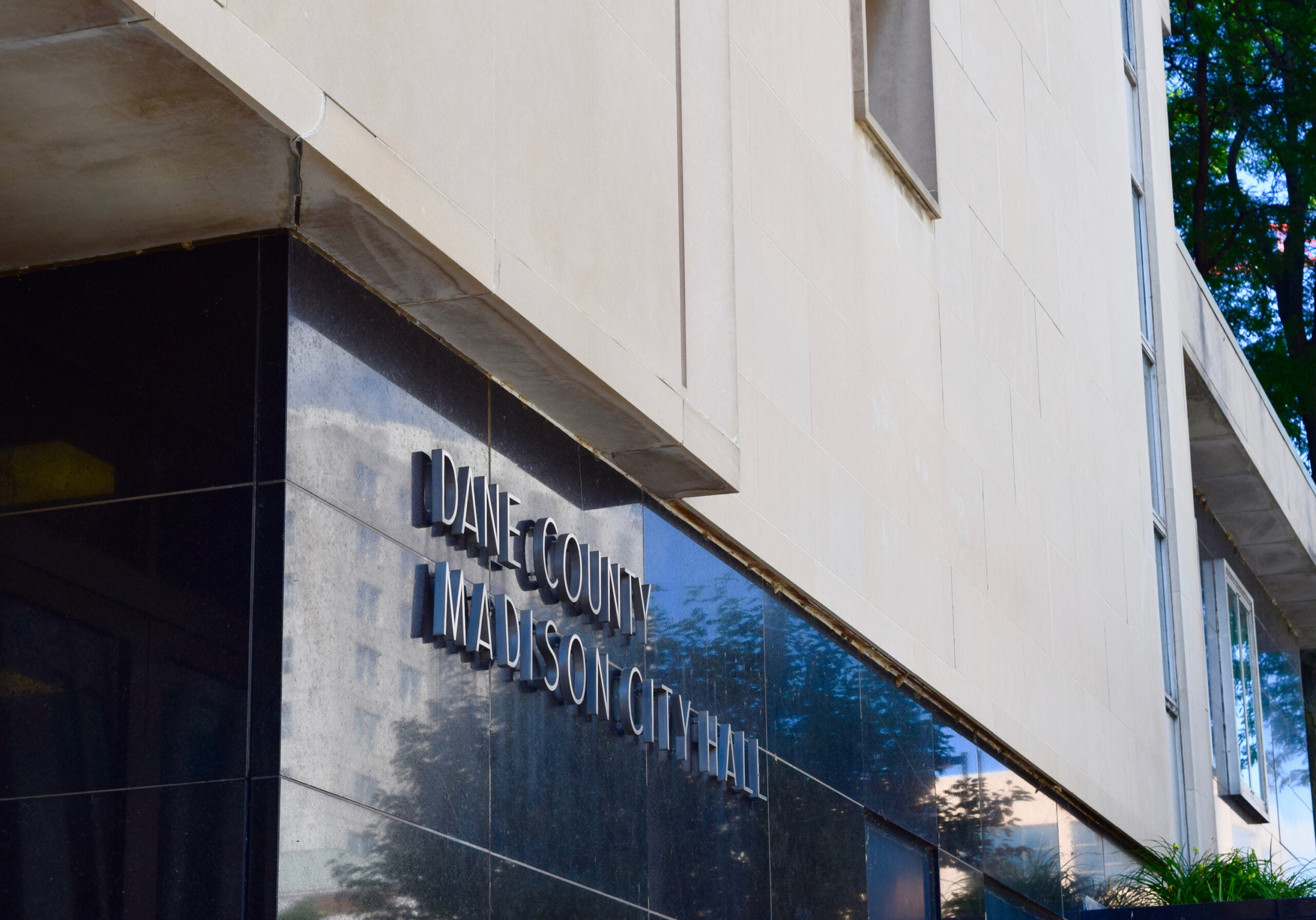Madison’s Common Council is preparing to vote on a resolution that would formally rebuke an alder who faces domestic violence and harassment allegations from numerous women.
As of Thursday afternoon, 13 of the Common Council’s 20 members had already signed on as sponsors of the measure calling for the censure of District 18 Alder Charles Myadze.
That’s more than the 11-person majority needed for the resolution to pass. Madison’s Mayor Satya Rhodes-Conway is also listed as a sponsor.
News with a little more humanity
WPR’s “Wisconsin Today” newsletter keeps you connected to the state you love without feeling overwhelmed. No paywall. No agenda. No corporate filter.
The measure’s set to be introduced at Tuesday night’s Common Council meeting before being voted on Dec. 10, said Alder MGR Govindarajan, the resolution’s lead author.
Although the resolution for censure is symbolic, and will not force Myadze off the council, Govindarajan said it’s important for Myadze’s peers to take a stand.
“It sends the message that your conduct is inappropriate, it is unethical, and you should resign,” Govindarajan said.
Myadze is serving a two-year term that ends in April 2025, representing a portion of Madison’s north side. He did not respond Thursday to a request for comment.
He’s faced calls for his resignation since this spring. That’s after his former girlfriend posted to Facebook on March 15, alleging Myadze had abused her over a nearly 8-year-period that ended 12 years ago. And, shortly thereafter, Myadze’s ex-wife also came forward publicly, telling Madison365 that Myadze was physically violent toward her starting in the late 1990s until their divorce in the early 2000s. When those allegations came to light, Myadze denied them.
After being arrested on domestic violence-related charges in 2002, Myadze pleaded guilty to a false imprisonment charge as part of a deferred prosecution agreement which ultimately allowed the charges against him to be dismissed and expunged from public records.
Recently, the demands for Myadze’s resignation have escalated. Last week, the city released a report after hiring an outside law firm to investigate sexual harassment complaints levied against Myadze by three different women. The women brought those complaints to the city in April of this year.
The report ultimately concluded that Myadze’s conduct toward the three women did not rise to the level of violating the city’s harassment policy, but described his conduct as “troubling.”
Following the report’s release, Gloria Reyes, a former candidate for Madison mayor, came forward in a Nov. 15 Madison365 article. She told the nonprofit news organization that Myadze was physically abusive toward her while the pair was in an on-again-off-again relationship from 2018 to 2021.
Reyes provided the news outlet with emails she sent to herself and to Myadze during the course of that relationship, including photos showing Reyes with black eyes and bruises, according to Madison365.
Reyes formerly served as Madison’s deputy mayor and as president of the Madison school board.
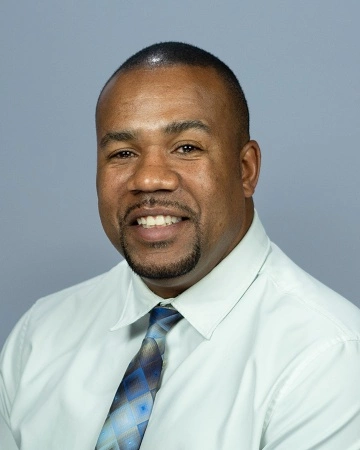
How Council could remove an alder
Govindarajan says he hopes being censured will encourage Myadze to step down voluntarily.
If that doesn’t happen, there are limited avenues to forcing him out of office mid-term.
Voters in Wisconsin can attempt to oust elected officials after gathering enough signatures for a recall election
Or, the Common Council could vote with a supermajority of at least 15 alders to remove Myadze for cause. Such a process would take place after a “quasi-judicial” hearing, involving witnesses and questioning by alders, said City Attorney Mike Haas.
Although council members have requested information about how such a hearing would proceed, it’s not yet clear whether a removal for cause would be the best path forward, Govindarajan said.
“I think it is a lot to place that kind of responsibility in a public setting where the decision is actually also partially being made by Charles Myadze,” Govindarajan said. “It’s difficult to put the survivors in that position.”
Report initially concluded Myadze violated city policy
To preserve their anonymity, the recently-released report redacts the names of the women who filed harassment complaints against Myadze.
One is identified as city employee, and another is described as non-city employee whose work often intersects with city issues.
The third woman is listed as a Madison elected official. After the report’s release, Madison District 2 Alder Juliana Bennett publicly identified herself as that complainant.
In the report, the women described incidents that occurred in 2022 and 2023, including sexually inappropriate comments. One of the woman also described physical conduct from Myadze that made her feel uncomfortable, including unsolicited hugs and having Myadze force her to stroke his bicep.
Initially, Emil Ovbiagele, the attorney hired by the city, concluded Myadze’s conduct toward Bennett violated city policy because it was “severe and persistent” enough to create a hostile work environment.
Specifically, the report described how Bennett told investigators that Myadze made sexually explicit comments toward her when they were attending a conference in March 2022. After Bennett told some colleagues that Myadze was making her feel uncomfortable, she told investigators he confronted her in April 2022, while the pair were waiting in his car to discuss city business.
According to Bennett, Myadze locked the car’s doors before telling her, “If I ever hear you say anything like that about me again, you and me are done.” That made her feel “frozen” and “fearful of repercussions if she spoke out,” the report says.
But the firm reopened its investigation after Myadze’s attorney raised due-process concerned and submitted additional materials.
In its revised conclusion, the firm cited text messages and other communication between Bennett and Myadze after the incident at his car. Ovbiagele ended up reversing his earlier finding, writing that Bennett’s “cordial and professional” tone toward Myadze indicates that her ability to work with Myadze was not adversely affected by a hostile environment.
In a post to her Common Council blog after the report’s release, Bennett wrote that she initially kept quiet about Myadze’s actions in part because of a “sense of responsibility to my 14,000+ constituents.”
“It is a shame that my ability to handle a tense situation with professionalism is what ended up being used against me,” Bennett wrote. “Despite the legal conclusion not being in my favor, this whole experience is emblematic of a broader issue of lack of accountability in our legal system for abusers.”
Govindarajan said he “agrees 100 percent” with Bennett’s criticism of the findings. He called Bennett a “very strong” person and said it’s unfortunate that her continuing professional relationship with Myadze was used against her in the investigation’s revised conclusion.
“Imagine this: You have put up with sexual harassment and workplace harassment,” he said. “However, your job in your workplace is to represent your constituents, and that requires working with all 19 members … of Common Council, including an individual who is harassing you.”
Govindarajan says the city should revise its internal policies.
“Elected officials should be held to a higher standard, and right now, the system that exists protects them way too much,” he said.
Earlier nonbinding resolution called for supporting domestic violence survivors
In April, after reporting about domestic violence allegations against Myadze more than two dozen elected officials in Greater Madison signed a letter asking Myadze to resign.
And, on April 16, the Council passed a nonbinding resolution which symbolically affirmed the body’s “unwavering support for survivors of domestic violence and abuse.”
Myadze participated in that meeting remotely and voted to approve the resolution.
During that meeting, Bennett asked to be removed as a sponsor of the anti-domestic violence resolution after Myadze signed on as one of the sponsors.
“I know that I am registered as a sponsor of this resolution, but seeing the other sponsors I cannot in good faith want to be a part of that list,” Bennett said on April 16.
Wisconsin Public Radio, © Copyright 2025, Board of Regents of the University of Wisconsin System and Wisconsin Educational Communications Board.

